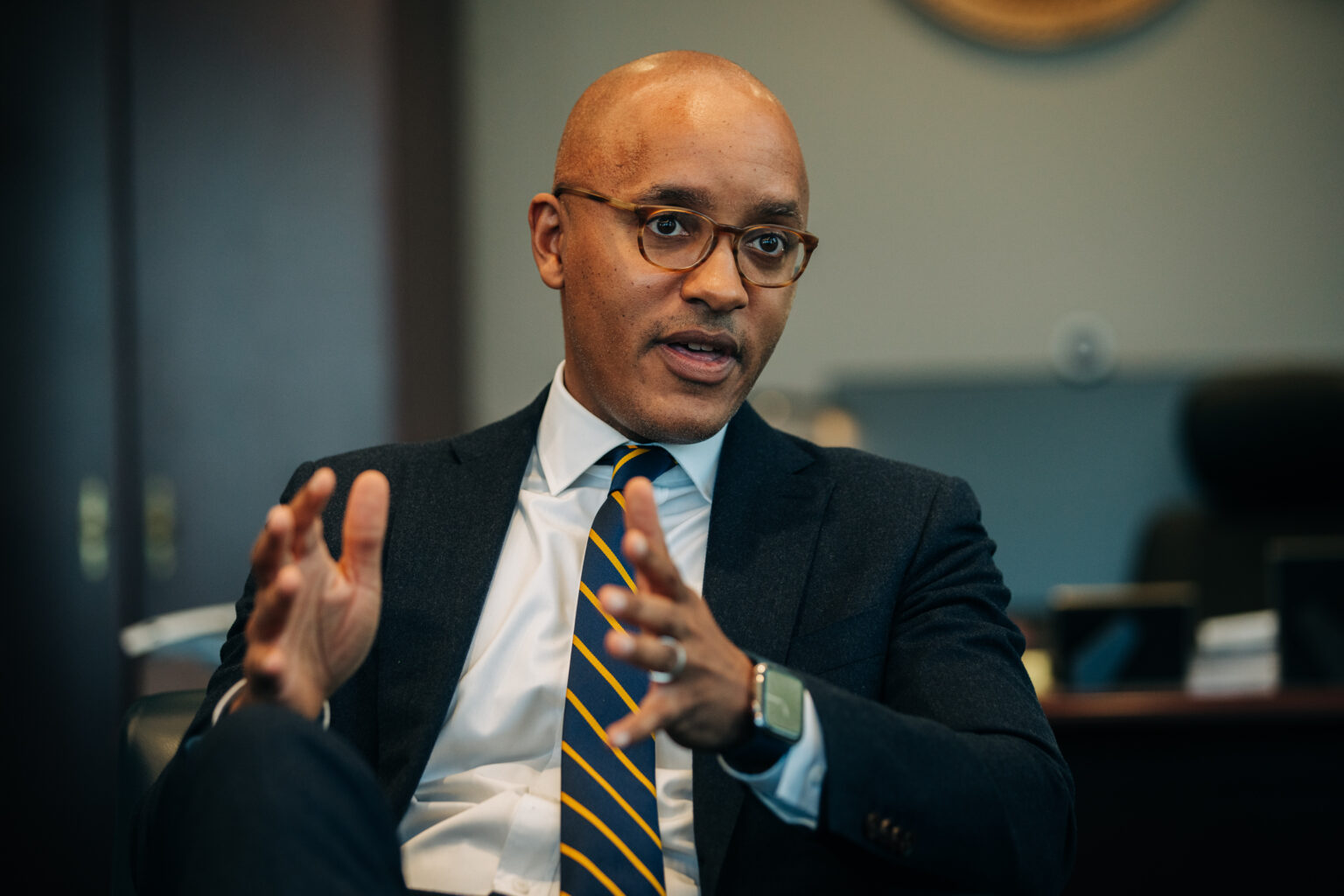High-Profile Legal Shift: Damian Williams Transitions from Paul Weiss to Jenner & Block Amid Political Legal Battles
Damian Williams, renowned for his tenure as the leading federal prosecutor in Manhattan, has announced his departure from the prestigious law firm Paul Weiss to join Jenner & Block. This move marks a significant shift, as Williams transitions from a firm that previously negotiated a deal with the Trump administration to one that actively challenged it in court.
Context of the Legal Landscape and Political Tensions
This transition occurs against a backdrop of intense political and legal upheaval. Earlier this year, several prominent law firms faced scrutiny and pressure from the Trump administration, which issued executive orders targeting firms that either represented perceived adversaries or took stances against his policies. Some firms responded by filing lawsuits to contest these orders, while others opted to strike deals, offering pro bono services or financial commitments to avoid sanctions. These actions have sparked widespread debate within the legal community about the appropriate response to government overreach and political influence.
Williams’s Departure: A Noteworthy Development
While numerous attorneys have left firms involved in these contentious issues, Williams’s exit stands out due to his prominence and the contrasting approaches of the firms involved. His decision to leave Paul Weiss, a firm that engaged in a deal with the Trump administration, for Jenner & Block, which challenged such measures, underscores the complex dynamics at play within the legal profession today.
“Having witnessed firsthand the dedication and integrity with which this firm handles complex cases, I am eager to join a team that embodies exceptional legal expertise and is unafraid to confront difficult issues – ultimately delivering impactful results,” Williams stated in a recent announcement.
The Background of the Deal with the Trump Administration
In March, Paul Weiss became the first major law firm to reach an agreement with the Trump administration. The administration initially targeted the firm with an executive order, but after Paul Weiss committed to providing approximately $40 million worth of pro bono legal services-covering causes such as veteran support and anti-hate initiatives-the order was rescinded. Subsequently, eight other firms entered into similar arrangements, collectively pledging nearly $1 billion in pro bono legal work, reflecting a broader industry response to political pressures.
Legal Challenges Against Trump’s Executive Orders
Meanwhile, four firms, including Jenner & Block, opted to challenge Trump’s executive orders through litigation, arguing that the sanctions and restrictions threatened their operational viability. These orders targeted firms that employed individuals or took positions opposed to Trump’s policies, with measures such as barring employees from federal buildings, restricting access to government contracts, and disqualifying them from federal employment opportunities.
Judicial rulings have largely favored the firms. For instance, U.S. District Judge John D. Bates recently invalidated Trump’s sanctions against Jenner & Block, describing the orders as “an unconstitutional act of retaliation” that could severely impair the firm’s ability to attract clients and talent. A similar case involving Susman Godfrey remains pending, with a temporary injunction blocking most of Trump’s punitive measures. The Department of Justice has yet to clarify whether it intends to appeal these decisions.
Impact on Law Firms and the Broader Legal Community
The firms that entered into agreements with the Trump administration have experienced significant internal upheaval. Several attorneys have resigned in protest, and some have contemplated leaving altogether. Client relationships have also been affected, with some clients shifting their legal work from firms that made deals to those actively opposing the administration’s policies.
Paul Weiss, in particular, has seen notable departures, including four partners who recently established their own practice. Steven Banks, who led the firm’s pro bono efforts, also left last month, criticizing the administration’s actions as an attempt to “create a chilling effect across civil society.”
Defending Strategic Decisions Amid Political Controversy
Despite the controversy, firms like Paul Weiss defend their strategies as necessary responses to unprecedented political pressures. Brad Karp, the firm’s chairman, emphasized that even if the firm had challenged the executive orders in court and succeeded, the financial and operational risks might have jeopardized the firm’s future.
Williams’s Career and Leadership in Public Service
Williams’s return to Paul Weiss this year marks a significant chapter in his distinguished career. Previously, he served as the U.S. Attorney for the Southern District of New York, a role he held until late last year. Notably, he was the first African American to lead this influential office, often called the “Sovereign District” due to its independence from Washington’s Justice Department leadership.
During his tenure, Williams oversaw high-profile prosecutions, including the conviction of Senator Bob Menendez (D-New Jersey) and the indictment of New York Mayor Eric Adams on corruption charges-cases that the Trump administration later abandoned, leading to internal conflicts and resignations among prosecutors.
Expertise and Future Outlook
Tom Perelli, Chair of Jenner & Block, praised Williams’s extensive experience, stating, “Damian’s legal acumen and leadership will be invaluable in guiding our clients through some of the most complex and pressing challenges they face today.” His move signifies a broader trend of seasoned legal professionals aligning with firms that uphold principles of judicial independence and challenge political overreach.
As the legal landscape continues to evolve amid ongoing political tensions, Williams’s transition exemplifies the ongoing struggle within the legal community to balance advocacy, integrity, and strategic interests in a polarized environment.

